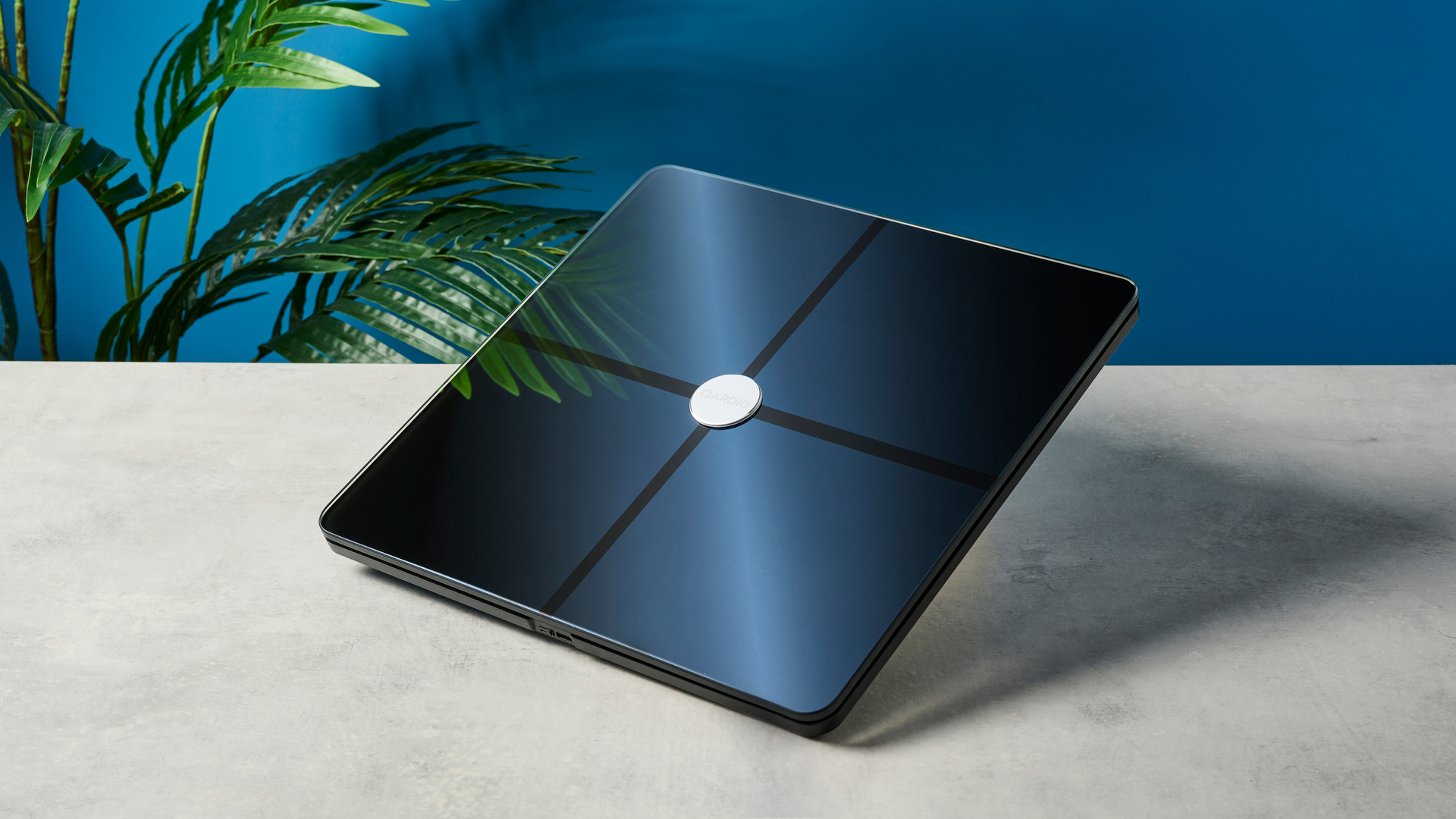
Whether you’re a casual runner like me or you’re entering triathlons, you’ll want to be keeping track of your body composition statistics. While smart scales aren’t necessary for everyone, for those with an interest in fitness and exercise, they’re a useful investment. But how do you find the best smart scales?
Let me help you with that. I’ve reviewed Withings, Wyze, Renpho, and QardioBase scales, and done my fair share of smart scale research. So when I found QardioBase’s newest scale, the X, I knew I had to try it out. QardioBase is known for its blood pressure monitors and various cardio health devices, and the X is their third smart scale. QardioBase claims it’s accurate within 0.1-0.2 pounds and it can analyze an impressive 11 metrics. But is it one of the best mid-range smart scales?
Find out what I think in this QardioBase X smart scale review.
QardioBase X review: Cheat sheet
- Who is it for? Those with an interest in tracking health and fitness, who may already own QardioBase blood pressure products
- What does it do well? It’s decently priced at $94 and looks high-end
- What are its weaknesses? The QardioBase app has some unique features but locks secondary information behind a paywall
- What should you use it for? Tracking basic health metrics and syncing with other QardioBase products
QardioBase X review: Specs
QardioBase X review: Price & availability
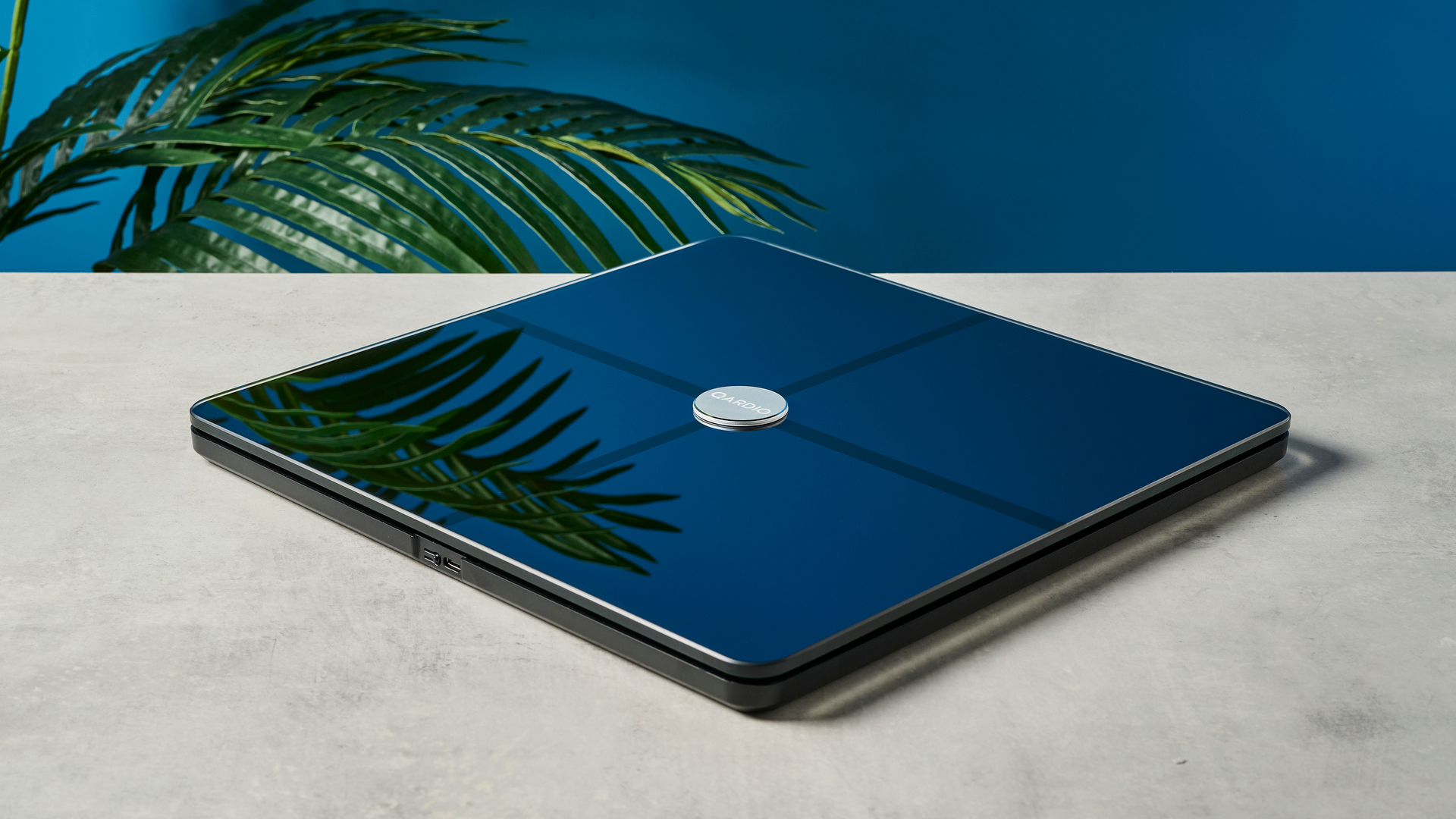
The QardioBase X smart scale is available for $94 from QardioBase’s website directly. At the time of writing, it isn’t available on Amazon. This price puts it around the same as the Withings Body Smart ($99 — the brand’s entry-level scale) and the Eufy P3 ($89), but it’s by no means a budget purchase. The Wyze X ($33) is a whopping $60 cheaper, which is a good option if you’re getting to grips with fitness and don’t want to splurge on a top-of-the-range device yet. Don’t get confused — the Wyze X scale and the QardioBase X scale, while having the same name and looking almost identical, are not the same device.
QardioBase X review: Design & display
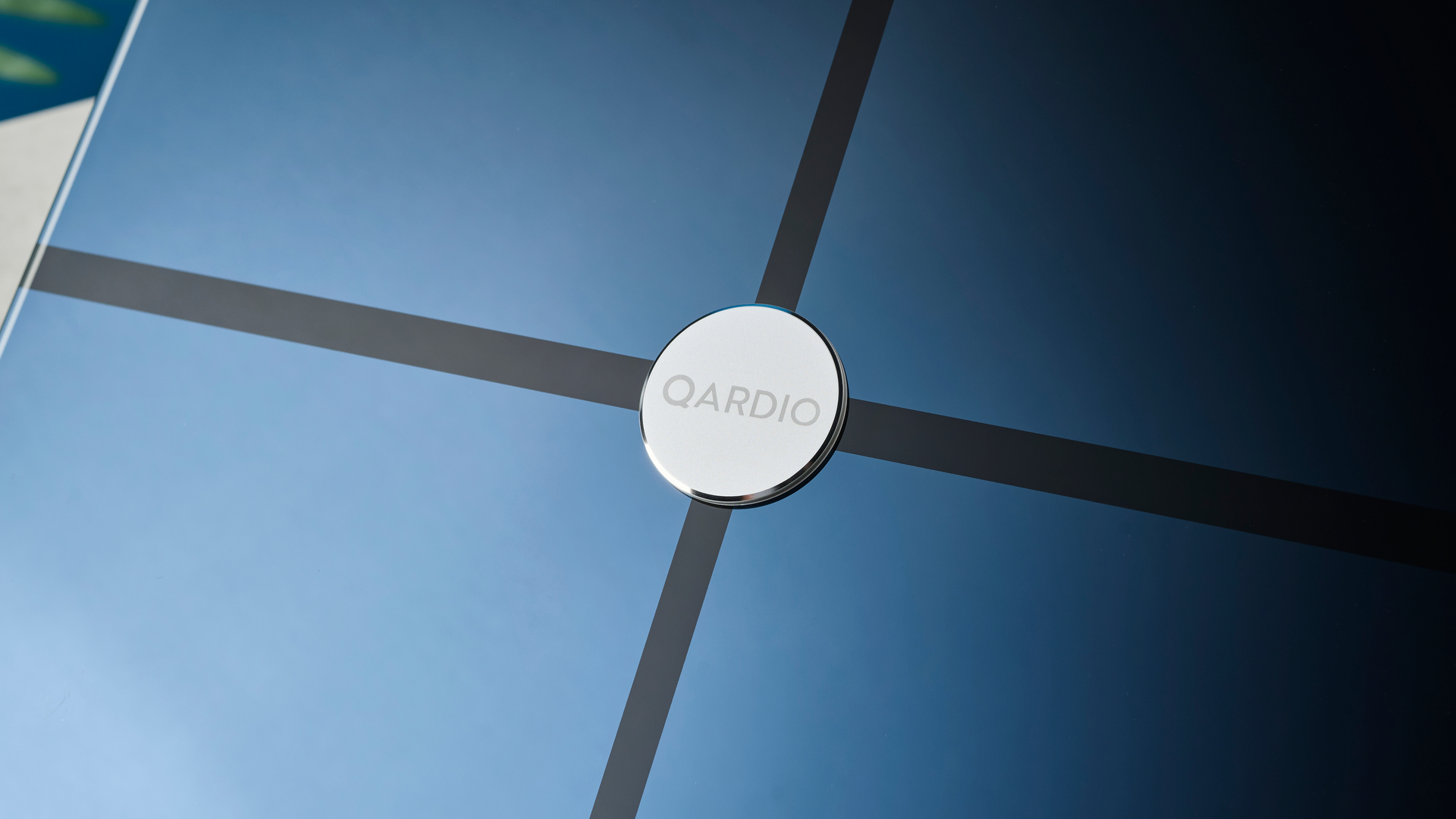
QardioBase’s third foray into smart scales improves upon its predecessor's design exceptionally well. The X scale comes in black and white, and I reviewed the black version, which would have been my choice had I purchased this myself. The tempered glass finish is shiny, with an expensive, luxurious vibe, and the ‘+’ design across the top is reminiscent of Wyze X and the Withings Body Smart. You know what they say: if it ain’t broke, don’t fix it. And this modern dark design certainly ain’t broke.
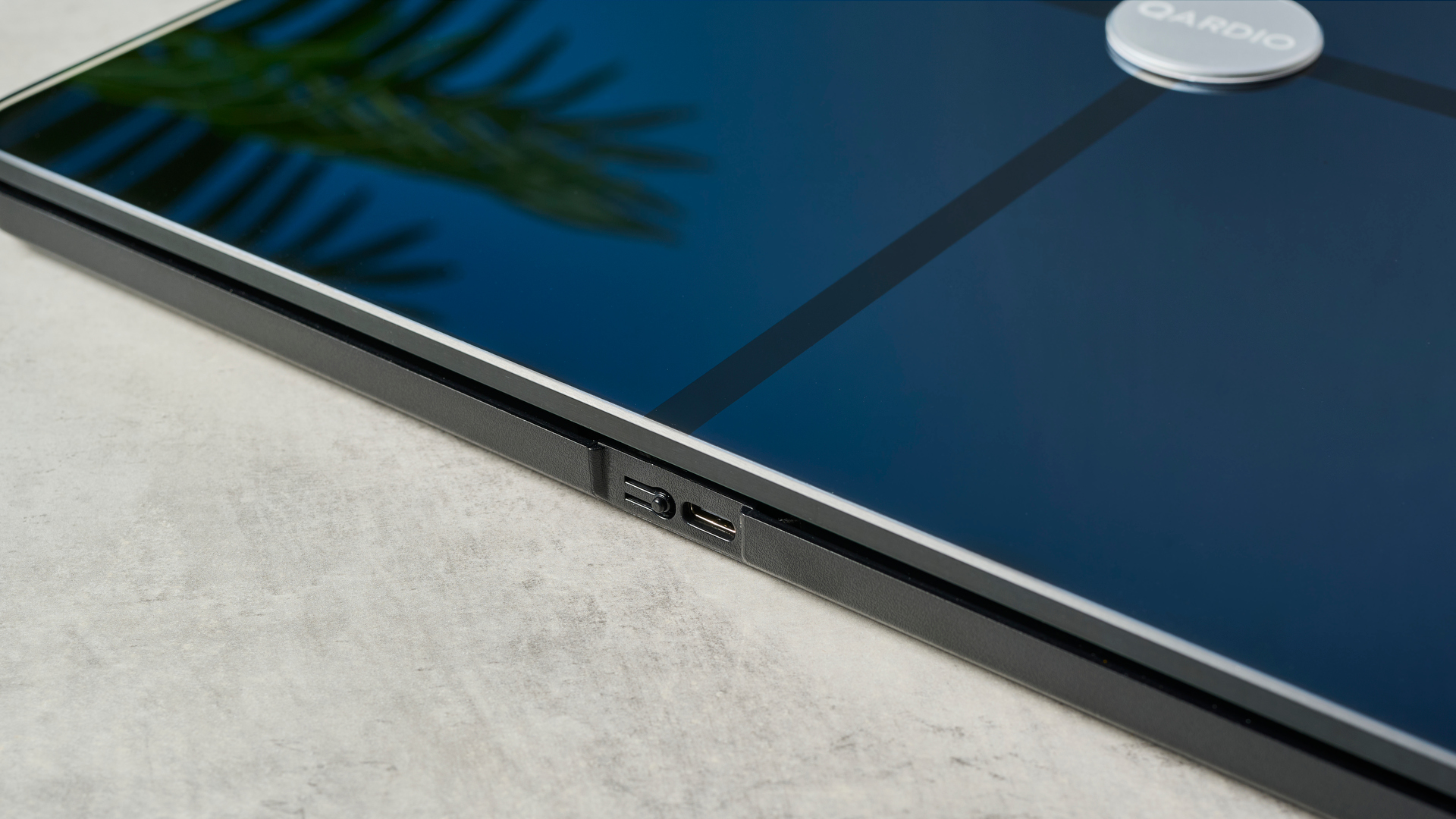
One thing that put me off a little is the font on the display. It’s the same font as on basic digital screens found on calculators and digital clocks, which is fine. But if I’m spending almost $100 on a smart scale, why can’t it have the colorful LED screen of the Withings Body Smart, or at least an original font as with the Wyze Scale X?
I’d like to see a screen with as much pizazz as the device has elsewhere, perhaps a more readable font or maybe even a color other than white.
QardioBase X review: Setup
I was pleasantly surprised to find the QardioBase X worked on my bedroom carpet, which means, unlike the Wyze X, I didn’t have to store the scale in the bathroom (where its low IP rating wouldn’t have been any protection against water splashes).
Setting up is straightforward, but there are a few niggles you should note beforehand. You’ll need to charge the scale as soon as you unbox it, because it doesn’t come juiced up. I charged the X using its USB-C charger (which I always appreciate over batteries) and then followed the instructions on the ‘quick-start’ manual in the box. After downloading the QardioBase app, available on iOS and Android, there were only a few taps required to select my scale.
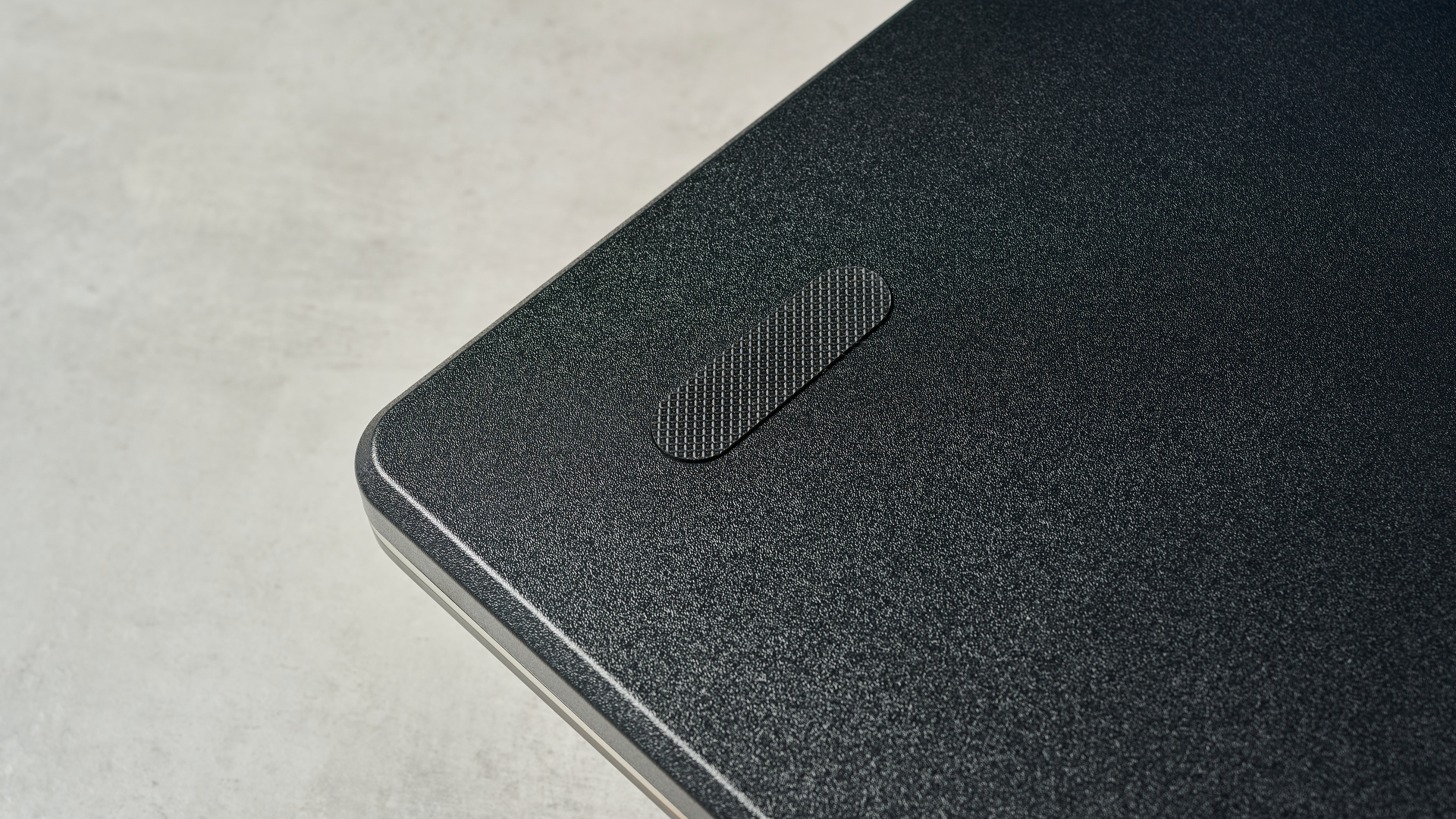
The app then prompts you to enter your height, sex, and DOB, and then asks you to select your ‘mode’. You can choose from normal, weight-only, out-of-sight (like Withings’ eyes-closed mode), athlete, and pregnancy. These modes are mostly standard on smart scales now, so there’s nothing out-of-the-ordinary here. Then you have to enter your Wi-Fi network name and password, but you’ll need to make sure the 2.4GHz channel is enabled on your router, as the scale only uses that frequency. After finally passing through all these screens, you press the button on the side of the scale, and ta-da! You’re ready to go.
QardioBase X review: Weigh-in
When you step on the QardioBase X, it takes your weight immediately. But don’t step off! It takes your other measurements — body fat, body water, protein, etc — afterwards, but it doesn’t tell you what it’s doing and when. That was one of my favorite things about the Withings scales, so I was a little disappointed not to see it here on a similarly priced scale.
The QardioBase X measures your muscle mass, body fat percentage, bone, water composition, metabolic age, basal metabolic rate, subcutaneous fat, visceral fat, skeletal muscle, protein, and finally, fat-free body weight. These metrics are about equal to similarly priced competitors like Body Smart and über-budget Renpho Smart Body Fat Scale ($44), but if you wanted cardiovascular health analysis, you’d need something high-tech like Withings Body Scan ($399), or buy QardioBase’s other products. While there was a little discrepancy with other brand measurements, the QardioBase’s results remained consistent over numerous readings. I found its body fat and visceral fat measurements a little lower than the Wyze Scale X, but higher than the Withings sales. The QardioBase X put me at 19% body fat on average, in comparison to the Wyze’s average of 23% and the Withings’ average of 17%.
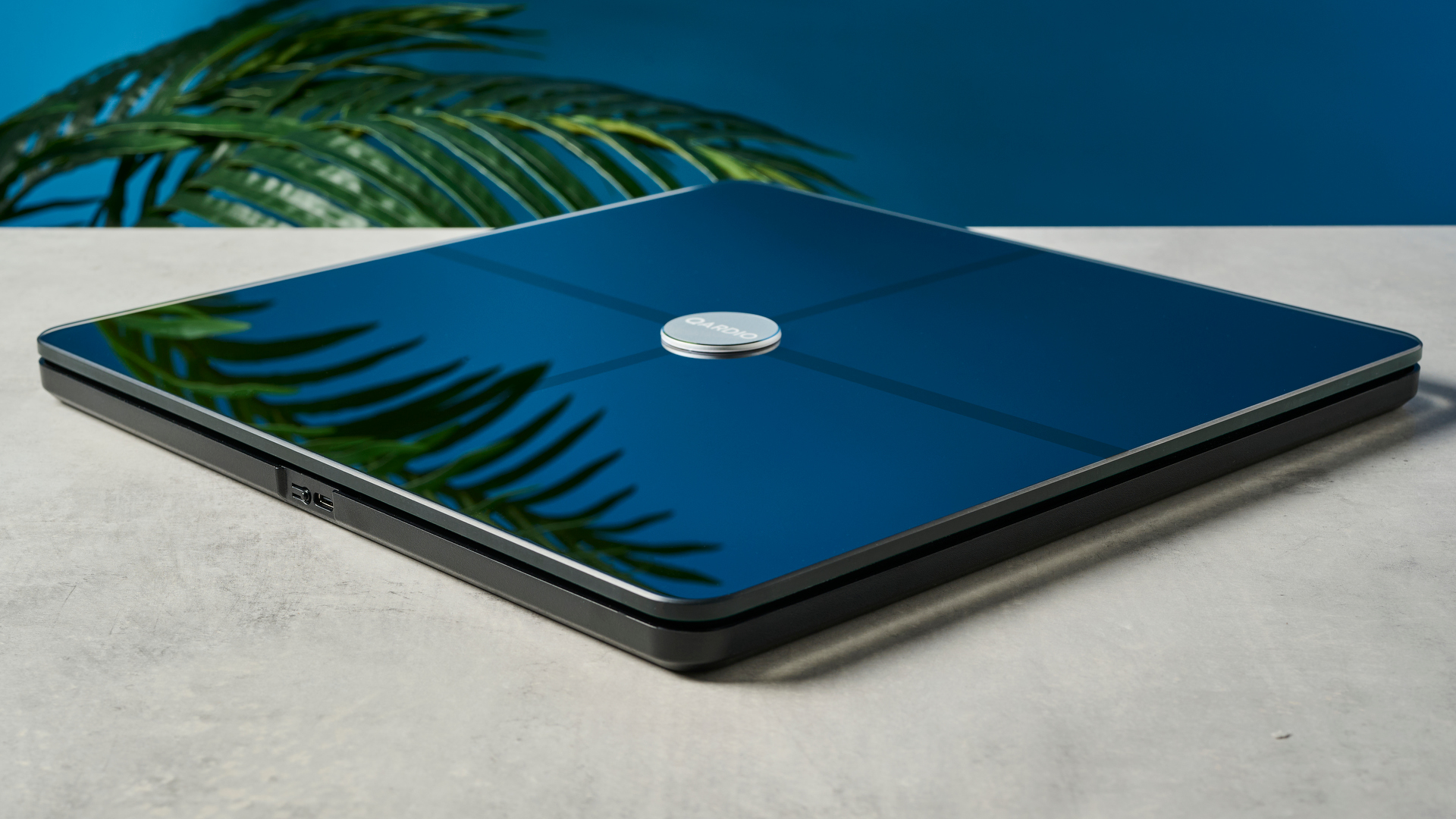
Now this is something I’ve never seen on a smart scale: fat-free body weight. While you could work this out yourself with a bit of calculus (my favorite thing in the world!), it's handy to have it accessible on the app. If you add it to your bone mass, you can work out exactly how much of your body weight is made up of fat. While these are all interesting things to be aware of, the Qardio app doesn’t tell you what the average is for your sex and age, and just leaves you with ‘standard’ ‘high’ and ‘low’ — it would be nice to see more useful context to these metrics.
QardioBase X review: App features
My issues with the Qardio app were similar to my issues with the Wyze app: too many adverts, not enough insights. But, given that QardioBase is primarily a health product manufacturer — whereas Wyze is a smart home product manufacturer — I expected its app to be more thorough.
The app does offer certain benefits. You can set schedule reminders in the app using the ‘Schedule’ tab, which will notify you at your chosen time to weigh yourself. You can also set reminders to take medicine — which is a great feature should you need it. If you own other QardioBase products like the blood pressure monitor and blood oxygen monitor, you can also set reminders to take these measurements. Unlike other smart scales apps I’ve seen, you can follow friends and write ‘notes’ about life events ranging from sickness to work life. This is a really heartfelt touch and I’d like to see this on other fitness apps.
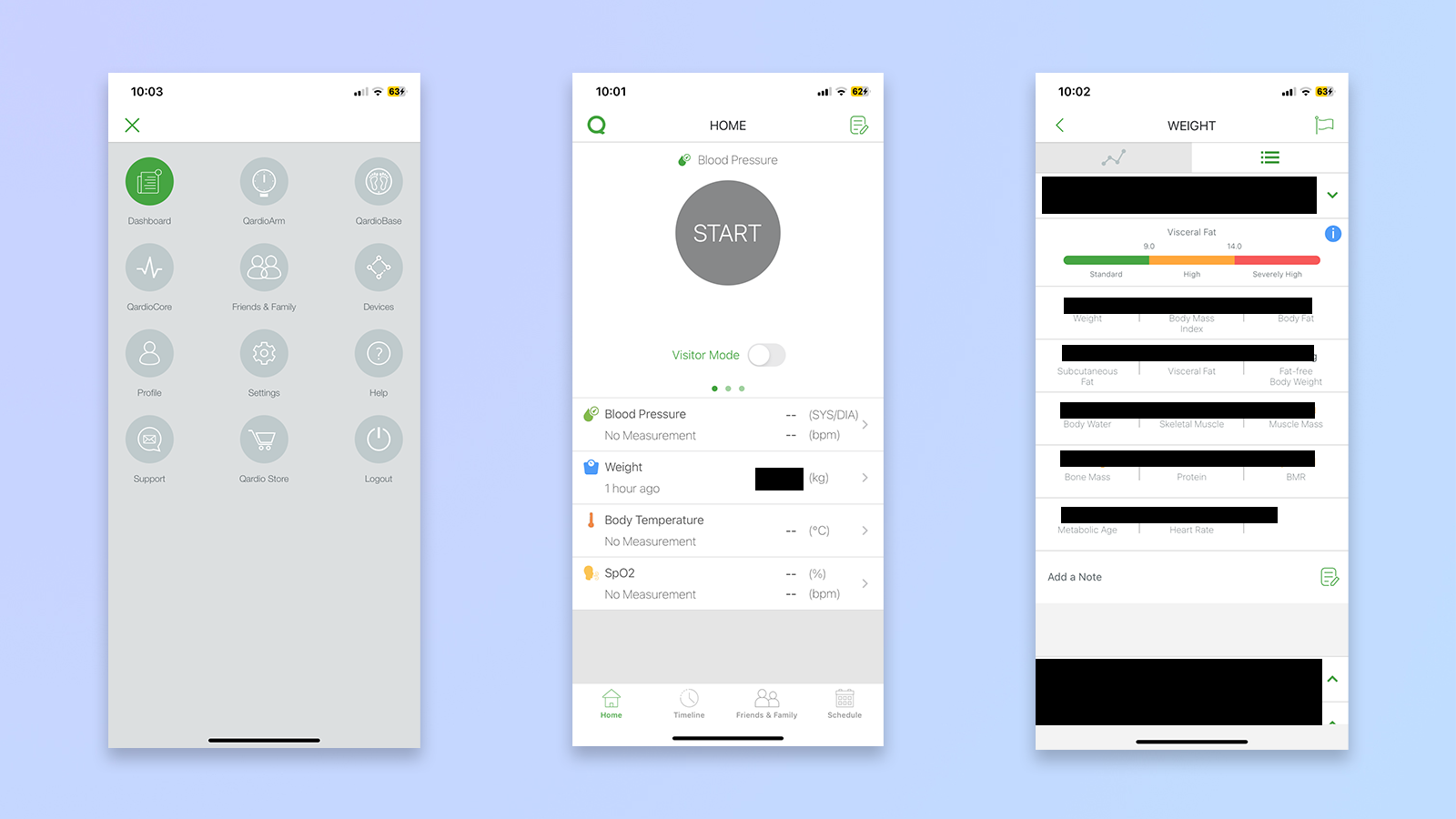
Another thing I liked about the QardioBase app is the visual analysis of metrics. When you tap on ‘weight’, the app shows you a graph, which you can switch between weight, BMI, body fat, and body water. This is a really nice, digestible way to view your metrics. On top of this, you can view all of your metrics in a handy table of color-coded icons. The icon table was by far my favorite part of this app. I wish other health apps like MorphoScan, Withings, and Wyze had this feature, too. The icons are color-coded in green, orange, or blue, correlating with ‘standard’, ‘high’, and ‘low’. So orange means you have ‘high’ muscle mass, and blue means you have ‘low’ muscle mass.

However, the app isn’t without issues. The app lacks the depth of information that made me give the Withings Body Smart ($99) 4 stars. On the Withings app, even with the free version, you gain access to a wealth of information to help you understand the measurements you’re seeing, ranging from “What is visceral fat?” to “BIA: About Bioelectrical Impedance Analysis”. The Qardio app has zero articles like this — usually, you get one sentence vaguely describing said metric — which may leave you in the dark about how your results may affect your health. While this isn’t the end of the world, I would like to see some fitness or health advice on a health app. Unfortunately, you can’t export any information as a spreadsheet or PDF like you can in the Eufy app or the Withings app, either.
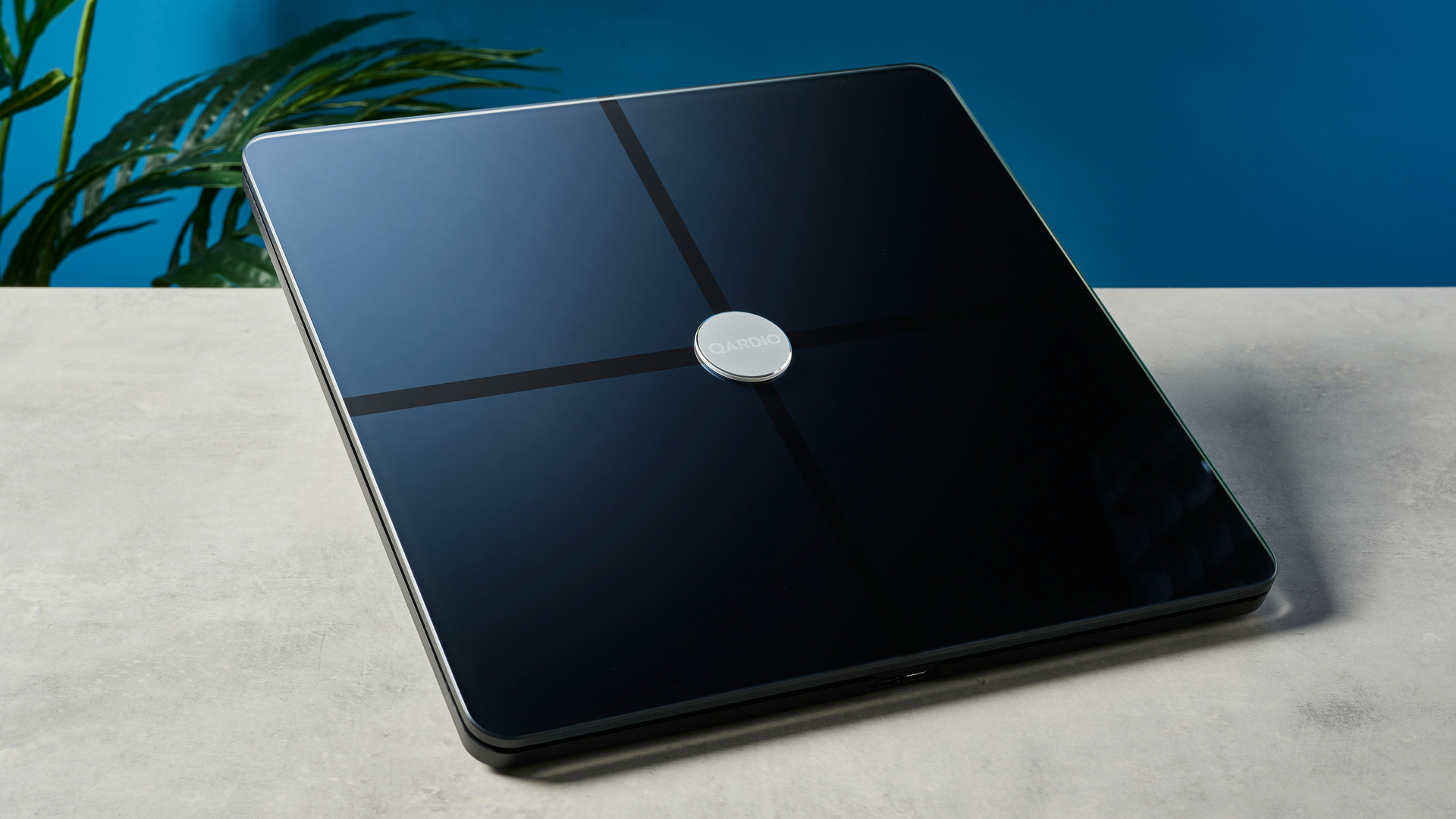
While much of the app is redundant if you don’t have other QardioBase products, the ‘weight’ tab analyzes a nice array of metrics with an attractive color-coded system. In the future, I would like to see more dedicated information for the X scale, especially if it’s the only QardioBase product you own.
If you subscribe to Qardio+, you’ll gain access to monthly insight reports, your health PDFs, pollution and weather insights, and device replacement. Obviously, though, this requires a yearly payment of $89.
QardioBase X review: Compatibility
The X scale is compatible with Apple Health, Google Fit, and MyFitnessPal.
This compatibility range is about as good as the Wyze Scale X ($33) and the Eufy Smart Scale P3 ($89), but pales in comparison with Withings’ 100+ third-party app partnerships.
QardioBase X review: Should you buy it?
The QardioBase X is a beautiful smart scale with an accessible app that provides a great level of insight from its core metrics. At $94, this isn’t a budget smart scale, but isn’t at the higher end of the spectrum, either. It’s almost exactly the same price as the Withings Body Smart ($99), and comes with most of the same features as the Body Smart. I would recommend you spend that extra $5 and get the Withings Body Smart if possible, primarily for the secondary app features the Withings app over the base metrics, but also for the enormous third party connectivity roster, and finishing touches like a nicer display. However, if you can’t find either of those two or spend the extra cash, the QardioBase X is doubtless a great scale.







